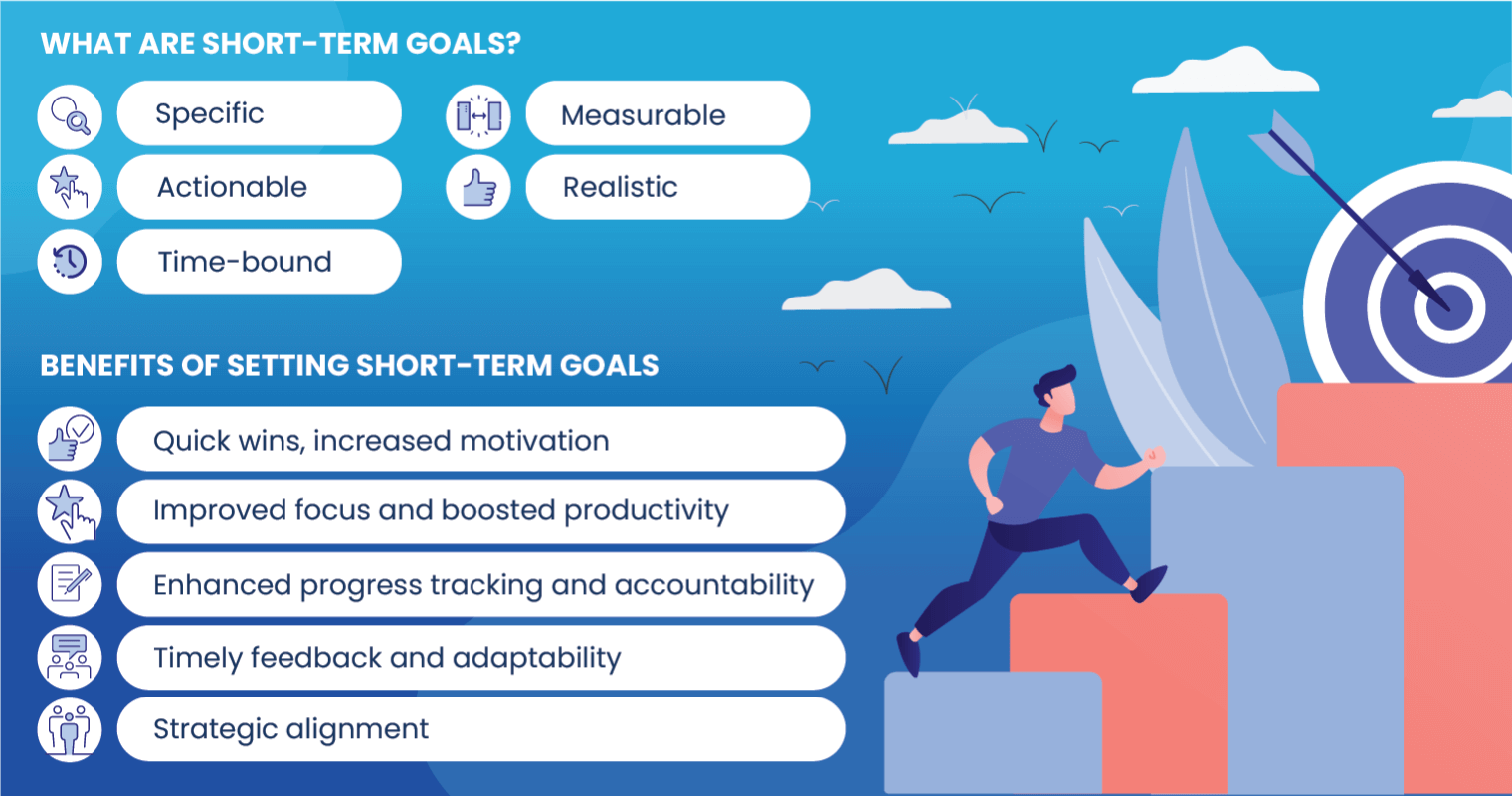Pursuing long-term goals can feel like a marathon. It's exciting when you first set those big dreams in motion, but staying motivated over time? That's the real challenge. Let’s dive into the strategies and mindset shifts that can help you maintain your enthusiasm and keep moving forward.
Break Down Your Big Goal into Smaller Milestones
Why It’s Important
A long-term goal can feel overwhelming. It’s like staring Stay Motivated When Pursuing Long-Term Goals at a mountain you need to climb—daunting and discouraging if you focus on the summit. Breaking your goal into smaller, manageable chunks helps make the process feel less intimidating. Each step brings you closer to your target.How to Break It Down
- Set Monthly or Weekly Targets: These should be attainable and lead you to the larger goal.
- Celebrate Small Wins: Every milestone deserves a little celebration. Whether it's buying yourself something nice or taking a day off, these rewards keep you excited.
Keep Your “Why” Front and Center
The Power of Purpose
When the going gets tough, remembering why you set your goal in the first place can reignite your motivation. Your "why" is the underlying reason that drives you—whether it’s personal growth, financial freedom, or helping others.How to Stay Connected to Your Why
- Write it Down: Post it where you can see it daily—on your mirror, workspace, or phone background.
- Visualize the End Result: Picture how achieving your goal will change your life.
Create a Routine and Stick to It
Why Routines Matter
Consistency breeds success. A structured routine eliminates the need to rely on willpower alone. It turns effort into habit, making progress almost automatic.How to Build a Routine
- Set a Specific Time: Dedicate a consistent block of time every day to work on your goal.
- Remove Distractions: Whether it’s social media or clutter, reduce anything that could pull you off track.
Surround Yourself with Supportive People
The Role of Accountability
Humans are social creatures, and having a supportive environment can significantly impact your ability to stay motivated. Whether it's a friend, mentor, or accountability partner, the right people will lift you up when you feel discouraged.Ways to Build Your Support Network
- Join Groups or Communities: Find others pursuing similar goals or challenges.
- Share Your Progress: Talking about your goals with friends or family can make you feel more accountable.
Embrace Flexibility and Adjust as Needed
Why Adaptability is Crucial
Life happens, and rigid plans can sometimes lead to burnout or frustration. Being open to adjusting your approach when necessary helps keep your progress steady even when challenges arise.How to Stay Flexible
- Reassess Regularly: Every month or so, evaluate what’s working and what’s not.
- Don’t Be Afraid to Pivot: If a strategy isn’t yielding results, tweak it until you find something that works better.
Focus on the Process, Not Just the Outcome
Process Over Perfection
When we obsess over the outcome, we risk losing sight of the day-to-day actions that lead to success. By focusing on the process, we enjoy the journey, which sustains long-term motivation.How to Shift Your Mindset
- Set Process-Based Goals: Instead of just aiming for a final outcome, create goals that are based on consistent actions, like "I will practice coding for 30 minutes daily."
- Track Your Efforts, Not Just Results: Keeping a log of the work you’re putting in can be more satisfying than only tracking milestones.
Visualize Success (But Don’t Overdo It)
Why Visualization Works
Visualization can be a powerful tool. When you mentally rehearse success, you train your brain to expect and achieve it. However, be careful not to spend more time dreaming than doing.How to Visualize Effectively
- Picture the Journey, Not Just the Destination: Visualize yourself overcoming obstacles, staying resilient, and putting in the effort.
- Combine Visualizing with Action: After your visualization session, immediately engage in a task related to your goal.
Practice Self-Compassion
Why Being Kind to Yourself Matters
We’re all human. You will face setbacks, and there will be days when motivation dips. Practicing self-compassion allows you to bounce back instead of beating yourself up, which drains even more energy.How to Practice Self-Compassion
- Talk to Yourself Like a Friend: When you mess up, avoid harsh criticism. Instead, offer the same understanding you’d give a loved one.
- Focus on Progress, Not Perfection: Celebrate how far you've come rather than dwelling on mistakes.
Take Breaks to Recharge
Avoiding Burnout
Constantly pushing yourself without taking time to rest can lead to burnout. Sometimes, the best way to stay motivated in the long run is to take a step back, recharge, and return with renewed energy.How to Incorporate Rest
- Schedule Regular Breaks: Plan small breaks throughout your workday and larger breaks (like vacations) throughout the year.
- Pursue Other Interests: Engage in hobbies or activities unrelated to your goal to refresh your mind.
Stay Inspired with External Motivation
The Power of Inspiration
While intrinsic motivation is essential, external inspiration can help when internal drive falters. Consuming content related to your goals, such as books, podcasts, or motivational talks, can provide a spark.Ways to Find Inspiration
- Follow Role Models: Find people who have achieved similar goals and learn from their stories.
- Curate Motivational Media: Create a playlist of motivational videos, TED talks, or podcasts you can listen to when feeling down.
Track Your Progress Regularly
Why Tracking is Motivating
Tracking your progress provides tangible evidence that you’re moving forward, even if it feels slow at times. This boosts confidence and keeps you motivated to continue.How to Track Effectively
- Use a Journal or App: Write down what you’ve accomplished each day or week.
- Review Monthly: Go over your achievements at the end of every month to see how much closer you are to your goal.
Set a Deadline (Even if It’s Arbitrary)
The Power of Deadlines
Deadlines create a sense of urgency. Without them, long-term goals can feel too open-ended, leading to procrastination.How to Set Deadlines
- Create Specific Timeframes for Milestones: Assign deadlines to each of your smaller goals.
- Use External Accountability: Share your deadlines with someone who will hold you accountable.
Reward Yourself for Hard Work
Motivation Through Rewards
Rewards are a great way to reinforce your hard work. When you associate effort with positive outcomes, you're more likely to stay motivated.How to Reward Yourself
- Tie Rewards to Specific Achievements: For example, treat yourself to a fancy dinner once you hit a particular milestone.
- Use Both Small and Big Rewards: Smaller accomplishments might warrant a simple reward like a coffee break, while larger ones deserve something more significant.
Remember That Setbacks Are Part of the Journey
The Nature of Setbacks
No path to success is without obstacles. Accepting that setbacks will happen allows you to see them as learning opportunities instead of roadblocks.How to Bounce Back
- Don’t Give Up: When things don’t go as planned, regroup and adjust your approach.
- Learn from Mistakes: Each setback brings lessons that can help you refine your strategy.
Conclusion
Staying motivated over the long haul isn’t easy, but with the right strategies, mindset, and support system, you can keep moving toward your big dreams. Remember to celebrate your wins, stay connected to your "why," and be kind to yourself along the way. Motivation will ebb and flow, but your determination and consistent action will keep you on track. FAQs- What if I lose motivation entirely? Take a break and revisit your "why." Sometimes stepping away helps reignite your passion.
- How do I handle setbacks? Embrace them as learning opportunities and adjust your plan accordingly.
- Is it okay to adjust my goals? Absolutely! Flexibility is key to staying motivated, especially if circumstances change.
- How do I avoid burnout while pursuing long-term goals? Schedule regular breaks and give yourself time to recharge.
- What’s the best way to measure progress? Use a combination of short-term milestones and regular tracking methods, such as journaling or using apps.

